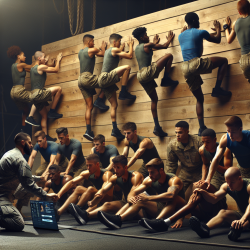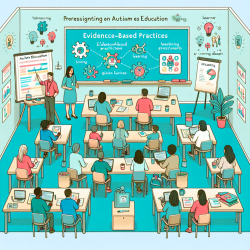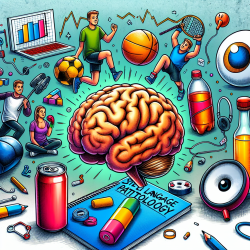Introduction
In the realm of collegiate athletics, the development of mental toughness (MT) is often pursued through various training methodologies. A recent study, "Mental Toughness Development via Military-Style Training in the NCAA," offers valuable insights into the perceptions of strength and conditioning coaches (SCCs) regarding military-style training (MST) and its role in fostering MT among athletes. This blog explores the study's findings and discusses how practitioners, particularly those involved in online therapy services like TinyEYE, can leverage these insights to improve outcomes for young athletes.
Understanding Military-Style Training and Mental Toughness
The study employed a three-phase, mixed-method design to examine the use of MST in the NCAA and its association with MT development. Contrary to popular belief, MST is not widespread in the NCAA. It is primarily utilized during the off-season and is most prevalent in football programs. The study revealed that MST is perceived as an effective tool for developing MT, with SCCs believing in its efficacy despite recent media backlash.
Key Findings and Implications for Practitioners
- Leadership and Team Development: MST is often used to enhance leadership skills and team cohesion. Practitioners can incorporate similar team-building exercises in their therapy sessions to promote social skills and leadership qualities in children.
- Mental and Physical Development: The study highlights the dual focus on mental and physical development through MST. Practitioners should consider integrating cognitive and physical exercises to foster resilience and discipline in young athletes.
- Media Misinformation and Bias: SCCs expressed concerns about media portrayal of MST. Practitioners should be aware of the potential biases in media narratives and focus on evidence-based practices to ensure the well-being of their clients.
Encouraging Further Research
The study underscores the need for ongoing research into the cultural practices within sports and their impact on athlete well-being. Practitioners are encouraged to stay informed about the latest research and consider how these findings can be applied to their practice. By prioritizing a holistic approach that considers both physical and mental health, practitioners can contribute to the development of cultural best practices in sports.
Conclusion
For practitioners working with young athletes, the insights from this study provide a valuable framework for enhancing mental toughness through targeted interventions. By understanding the nuances of MST and its role in athlete development, practitioners can better support the holistic growth of their clients. To delve deeper into the original research, please follow this link: Mental Toughness Development via Military-Style Training in the NCAA: A Three-Phase, Mixed-Method Study of the Perspectives of Strength and Conditioning Coaches.










